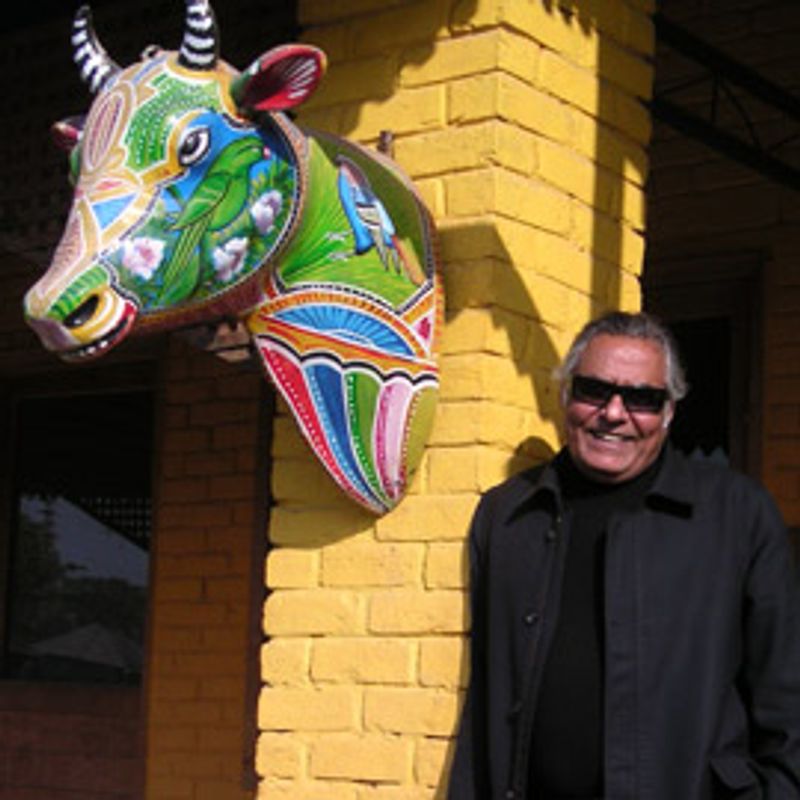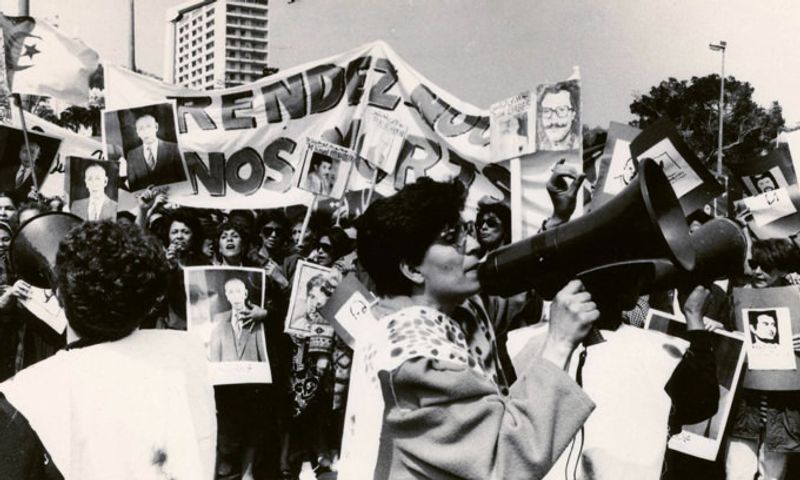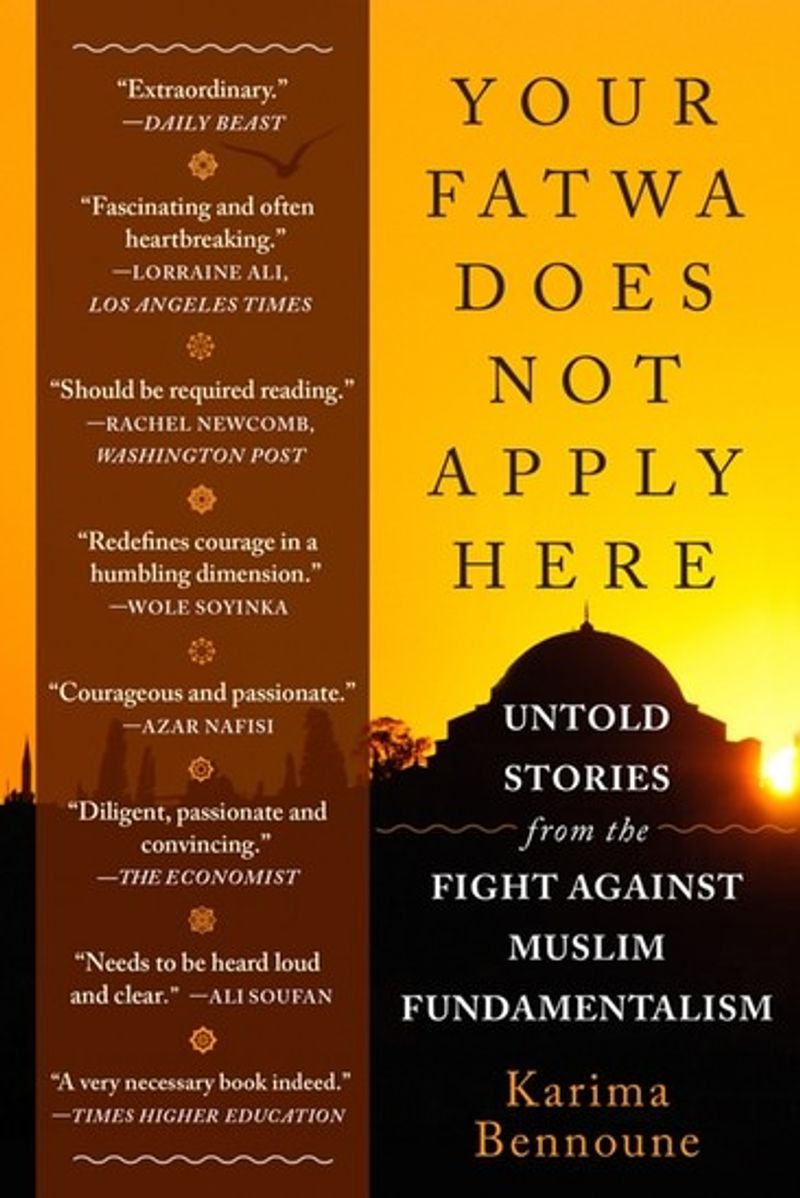“Courageous and passionate, illuminating the confiscated lives of secularists, religious minorities and Muslims alike. Yet what is striking is not their victimhood, but their resilience and resistance—that is where hope lies.
Your Fatwa Does Not Apply Here
Untold Stories from the Fight against Muslim Fundamentalism

In Lahore, Pakistan, Faizan Peerzada (pictured, left) resisted being relegated to a “dark corner” by staging a performing arts festival despite bomb attacks. In Algeria, publisher Omar Belhouchet and his fellow journalists struggled to put out their papers the same night that a 1996 jihadist bombing devastated their offices, killing eighteen of their colleagues and neighbors. In Afghanistan, Young Women for Change took to the streets of Kabul to denounce sexual harassment, undeterred by threats. In Minneapolis, Minnesota, Abdirizak Bihi organized a Ramadan basketball tournament among Somali refugees to counter recruitment efforts by Al Shabaab. In Egypt, female demonstrators tried to reclaim Tahrir Square on international women’s day despite Salafist harassment. In neighboring Sudan, women activists were dragged away from a Khartoum protest against the flogging of women for wearing trousers, but vowed to return “again and again.”

photo credit: El Watan
From Karachi to Tunis, Kabul to Tehran, across the Middle East, North Africa, South Asia, and beyond, these trailblazers sometimes risked death to combat the rising tide of fundamentalism within their own countries and communities.
Despite their courage and creativity, and the urgency of their efforts, this global community of writers, artists, doctors, musicians, museum curators, lawyers, activists, and educators of Muslim heritage remains largely invisible at the international level, lost amid the heated coverage of Islamist terror attacks on one side and abuses perpetrated against suspected terrorists on the other.

Increasingly frustrated with the stagnant, politicized public dialogue about the “clash of civilizations,” Karima Bennoune, an international human-rights lawyer, professor and activist, set out on an epic journey to change the conversation. She interviewed nearly 300 people from almost 30 countries, from Afghanistan to Mali and beyond. A veteran of twenty years of human rights research and activism, Bennoune draws on this extensive fieldwork and interviews to illuminate the inspiring stories of those who represent one of the best hopes for ending fundamentalist oppression worldwide. [tests]
“It is a record of unbelievable courage and defiance, yes, also of timorousness and surrender, of self-sacrifice and betrayals, of arrogance and restraint, intelligence and stupidity, fanaticism and tolerance – in short, a document of Truth at its most forthright and near unbearable, the eternal narrative of humanity that illustrates, the axial relation between the twin polarities called Power and Freedom which, I persist in pointing out, stand out as the most common denominator of human history.
“Her stories have impact. They’ll force you to re-evaluate the opinions of fashionable western cultural relativists, who sometimes justify veiling and FGM as authentic and unassailable cultural practices.
“[Bennoune’s] interviews sear with passion…Again and again, Bennoune shines a spotlight on those who battle with intelligence and creativity against guns and bloodlust…
“Fired with a sense of outrage… Bennoune, and those she profiles, bravely meets the tide of extremism with a sense of shared community and nonviolent purpose.
“For too long, these types of voices, those Muslims who stand for individual freedom, debate, creativity, and compassion, have been ignored. But if we are ever to defeat the extremists, the counter narratives they provide to the distorted version of Islam needs to be heard loud and clear.
“A powerful and captivating tribute to those brave women and men who have stood up to fundamentalist violence in their own countries from Afghanistan to Mali, this book will hopefully inspire a new and improved international human rights response.
“This work re-defines courage in a humbling dimension. Bennoune’s meticulous testament serves as a warning to the complacent, and rebukes ‘politically correct’ posturing that makes excuses for the inexcusable, and canvasses tolerance for the intolerable.
“Your Fatwa Does Not Apply Here could hearten those at the forefront of the struggle against fundamentalism, and even link such like-minded but often isolated people, creating a network to rival that of their tormentors.
“Her reporting is diligent, passionate and convincing…Ms Bennoune’s strongest stories are also her most bitterly personal, about the war that ravaged her homeland throughout the 1990s after the army stopped Islamists taking power. With courage and empathy, she takes readers to hardscrabble streets where Islamist militias unleashed a wave of almost indiscriminate butchery.
“a fascinating and often heartbreaking read
“Your Fatwa Does Not Apply Here should be required reading, not only for those of us who are professionally involved with Muslim-majority societies, but also for anyone who mistakenly believes that Muslims are doing nothing to end fundamentalist violence.
“[A] far-flung firsthand survey of artists, intellectuals, and activists across the Muslim world combating Islamist extremism in the cultural realm